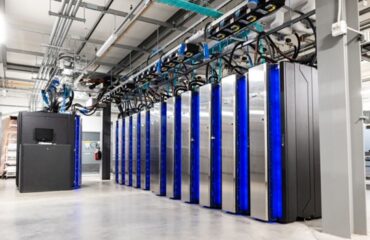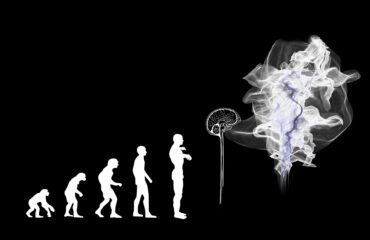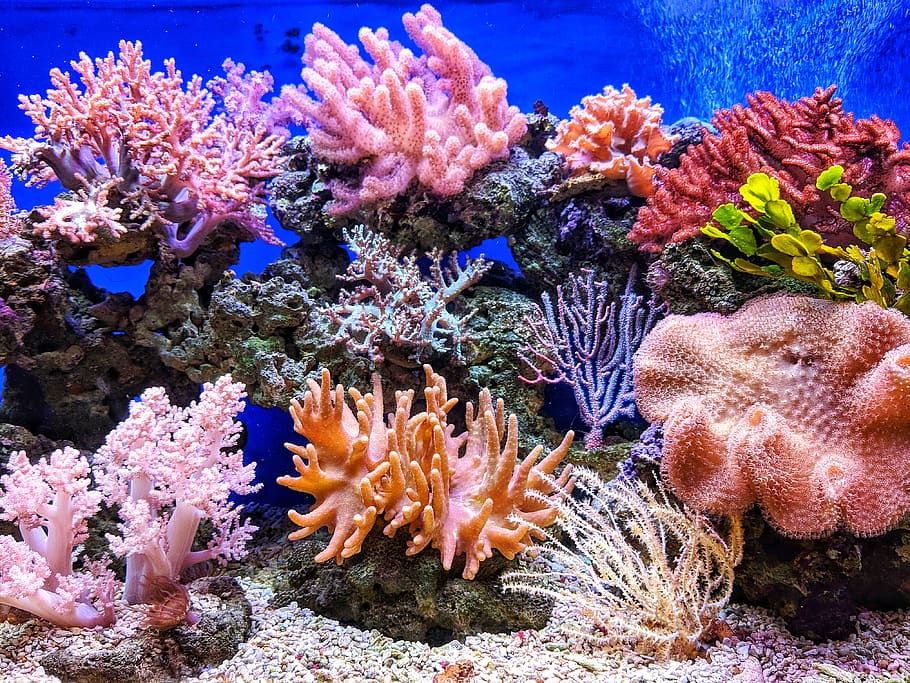
Different coral species. Image: Wallpaper Flare
By Mariana Meneses
Have you ever imagined helping in climate research? Now you can, with NASA’s NeMO-Net game.
NeMO-Net is a video game that engages players in the important task of mapping the floor of the oceans that define our blue planet. The game focuses on the significance of coral reefs, which play a crucial role in our ecosystem and climate regulation.
Unfortunately, coral reefs are facing unprecedented destruction due to rising temperatures.
To address this issue, NeMO-Net allows players to classify coral reefs by painting on real-life images obtained from the ocean floor. The classifications made by players are then sent to NASA scientists, who utilize them to teach their supercomputer how to classify reefs on a global scale.
By contributing to this game, players can actively participate in the effort to understand and save these vital aquatic ecosystems one piece of coral at a time.
There is a pressing need for increased knowledge of the vital connections between oxygen, corals, and algae in Earth’s oceans.
In a 2023 paper titled Increasing Hypoxia on Global Coral Reefs Under Ocean Warming, published in Nature Climate Change, scientists revealed that ocean deoxygenation – the chemical reaction that removes oxygen from the water – threatens marine ecosystems globally.
Current and future oxygen levels and low-oxygen events on coral reefs are poorly understood.
The researchers used sensor data to explore oxygen variability at 32 reef sites. They found widespread low-oxygen conditions, with some geographic differences that were expected: 84% of reefs had mild to moderate decreases, and 13% had severe low levels. Climate change scenarios indicate increased duration, intensity, and severity of hypoxia resulting from low-oxygen conditions. By the end of this century, under one scenario, over 94% of reefs may have mild to moderate hypoxia, and around 31% could face severe hypoxia. This oxygen loss harms coral reefs due to its vital role in their functioning.
The effects of oxygen loss may be even more acute in the high seas.
A 2021 study compiled 116 unique records of reef-building corals in marine areas beyond national jurisdiction (ABNJ), also known as the high seas. This shows evidence that coral reef habitats exist in the remotest parts of the ocean. The majority (over 77%) of the reef-building coral records in ABNJ were in unprotected waters, with none in existing marine protected areas (MPAs). This suggests coral reefs in the high seas are vulnerable to human activities. Moreover, the researchers estimated that 33-50% of these corals have already been significantly degraded due to climate change effects, concluding that continued emissions and temperature rise could destroy most remaining coral reefs in coming decades.
Additionally, in 2023, researchers showed that Indo-Pacific corals are more resilient to climate change than Atlantic corals. Due to global warming and other environmental changes, coral populations in the Atlantic Ocean have drastically decreased in recent years. For instance, according to the National Oceanic and Atmospheric Administration (NOAA), some reefs in the Florida Keys have lost up to 90% of their coral cover since the 1970s. Ship groundings, pollution, overfishing, hurricanes, disease, and warming ocean temperatures all impact the reefs and compromise coral health.
However, as the study shows, corals in the Pacific and Indian Oceans are doing relatively better than those living in the Atlantic.
The international team of researchers studied different types of algae that form symbiotic relationships with corals, which are essential for their growth. They discovered that the partnerships between corals and algae in the Indo-Pacific region are more adaptable and capable of withstanding higher ocean temperatures compared to those in the Atlantic. This resilience gives them a better chance of survival in the changing conditions.
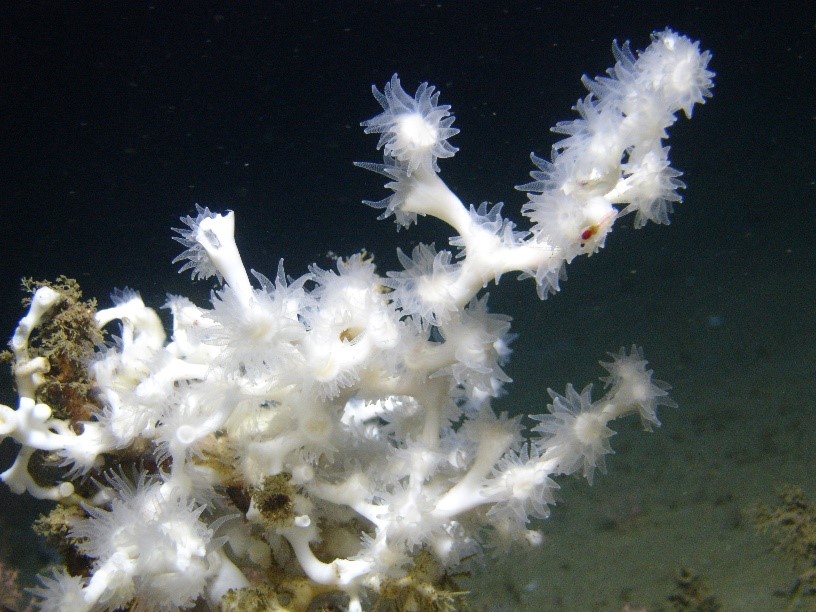
Lophelia (Lophelia pertusa), a reef-building cold-water coral, at approximately 450m below the ocean’s surface. Credit: NOAA Ocean Explorer
Ecological generalists, which are species that can thrive in a variety of environmental conditions and can make use of a range of different resources, play a vital role in understanding and protecting our natural world.
These adaptable species thrive in diverse environments and can withstand rapid climate change. Reef-building corals depend on a specific generalist species of plankton called dinoflagellates, some of which have broad distributions and form mutually beneficial relationships with corals.
Recently, scientists identified five new host-generalist species that partner with different corals across various environments. Host-generalist species can thrive in many host species, as they are flexible and not dependent on just one species as a host or food source. Exploring their effects on coral structures could shed light on temperature sensitivities. These generalists offer a response to rising ocean temperatures, supporting coral survival and productivity. Recognizing and classifying them improves scientific knowledge and fosters further research in this field.
The problems of ocean warming are numerous.
This 2023 scientific article in Nature Microbiology shows that corals and algae have a special relationship, but when the ocean warms, the algae can vanish, leading to the bleaching and death of corals.
To save these species, we need to grasp their connection with algae. Scientists studied a soft coral called Xenia sp., using RNA interference (RNAi) to investigate early-stage genes involved in this partnership. They discovered a coral marker that binds to algae, triggering the coral to surround and enclose the algae, effectively trapping it. This process is called phagocytosis, and it is a common way for cells to ingest foreign matter. This marker also helps regulate the coral’s immune response. Similar markers in other coral species suggest a shared role in recognizing and interacting with algae. This research improves our understanding of coral-algae relationships and offers insights for protecting them from climate change.
New research can improve conservation strategies.
For instance, in a 2023 paper published in Communications Biology, scientists reported finding a virus in tiny algae living in coral reefs by studying their DNA. They discovered that the virus becomes part of a long-lasting connection in the algae’s genetic material, which helps us understand how viruses, algae, and their hosts interact and affect coral reef ecosystems.
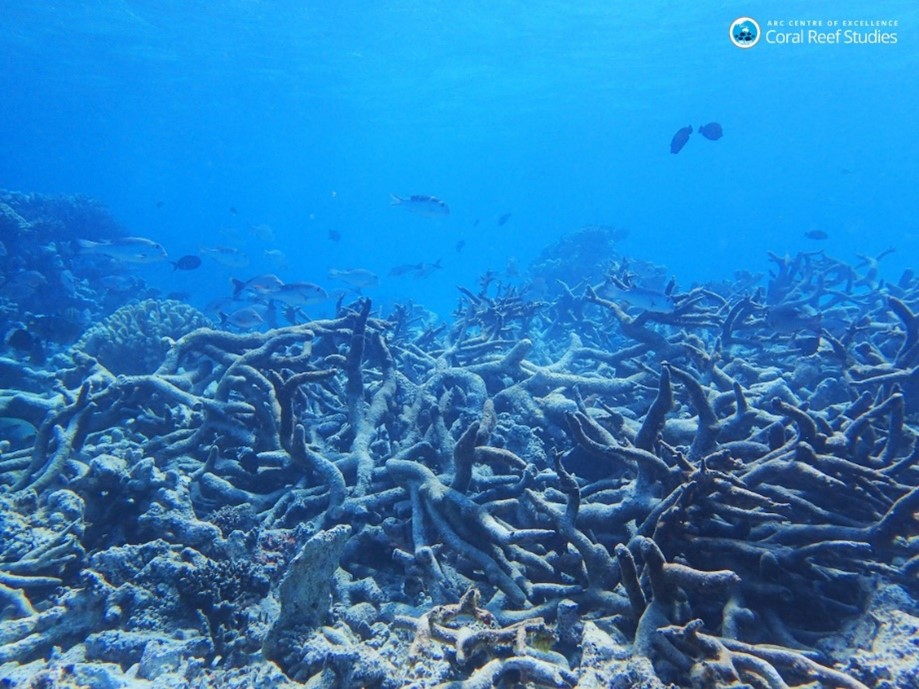
Graveyard of Staghorn coral, Yonge reef, Northern Great Barrier Reef, October 2016. Credit: ARC Centre of Excellence for Coral Reef Studies
Citizen-science projects like NeMO-Net provide researchers with critical new data and observations on Earth’s oceans and the sustainability of marine life.
According to the U.S. Geological Survey, the oceans hold about 96.5% of all water on Earth, with a volume of 1.338 billion cubic kilometers. Much remains to be discovered about this vast and critical resource, and citizen scientists are helping to unlock some important mysteries in the depths of the oceans.
Check out this TQR article, where we featured a number of citizen science projects.
Want to expand your horizons? Explore these handpicked TQR articles:
- Saving the Planet: Nobel Prize Recognizes Climate Science, but Will Mindsets Change in Time to Sustain Nature’s Potential and Value?
- Life Is Defined by Biology, Not Physics
- The Science of Wind
- The Mystery of Snowflakes and (Dis)Similarity in Nature


